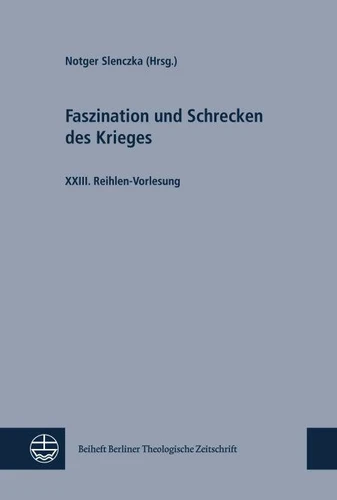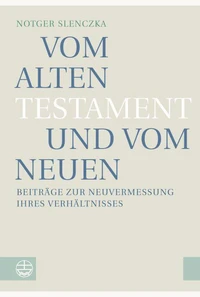Faszination und Schrecken des Krieges. XXIII. Reihlen - Vorlesung
Par :Formats :
Disponible dans votre compte client Decitre ou Furet du Nord dès validation de votre commande. Le format PDF est :
- Compatible avec une lecture sur My Vivlio (smartphone, tablette, ordinateur)
- Compatible avec une lecture sur liseuses Vivlio
- Pour les liseuses autres que Vivlio, vous devez utiliser le logiciel Adobe Digital Edition. Non compatible avec la lecture sur les liseuses Kindle, Remarkable et Sony
 , qui est-ce ?
, qui est-ce ?Notre partenaire de plateforme de lecture numérique où vous retrouverez l'ensemble de vos ebooks gratuitement
Pour en savoir plus sur nos ebooks, consultez notre aide en ligne ici
- Nombre de pages136
- FormatPDF
- ISBN978-3-374-04379-8
- EAN9783374043798
- Date de parution04/02/2016
- Protection num.Digital Watermarking
- Taille4 Mo
- Infos supplémentairespdf
- ÉditeurEvangelische Verlagsanstalt
Résumé
Hundert Jahre nach dem Ersten Weltkrieg ist das Echo dieses blutigen Beginns des bisher unübertroffen blutigen 20. Jahrhunderts noch nicht verhallt. Es gehört zu den auffälligsten Merkmalen dieses Krieges, dass der unfassbar gesteigerte Schrecken in bis dahin einmaliger Weise sich verbindet mit einer Begeisterung über das Ende eines als 'unheroisch' empfundenen Zeitalters und mit dem Versuch, diese Faszination des Krieges durch intellektuelle, religiöse und geschichtsphilosophische Deutung und tagespolitische Propaganda zu wecken und am Leben zu erhalten.
Der Wirkung dieses Krieges zwischen Faszination und Schrecken ging die XXIII. Werner-Reihlen-Vorlesung 2014 nach, die hier dokumentiert wird. Die den Krieg begleitenden weltanschaulichen und religiösen Deutungen und die Verarbeitung des Schreckens des Krieges in Kunst und Literatur wurden im interdisziplinären Gespräch erschlossen und diskutiert. [Fascination and Horror of War] Even 100 years after the end of World War I, the echo left by this bloody beginning to an insurmountably bloody century has still not faded away.
One of the most striking characteristics of this war is how unfathomable horror was combined in a unique way with an enthusiasm about the end of an era which was regarded as "unheroic". An attempt was made to arouse and sustain a fascination with war through intellectual, religious and philosophical constructions coupled with political propaganda. The XXIII. Werner-Reihlen Lecture Series held in 2014 examined the impact of World War I.
Interdisciplinary discussions explored the philosophical and religious constructions which accompanied this war as well as the attempts made by the arts and literature to cope with its horrors. The results of this conference are presented in this issue of the Beihefte zur Berliner Theologischen Zeitschrift.
Der Wirkung dieses Krieges zwischen Faszination und Schrecken ging die XXIII. Werner-Reihlen-Vorlesung 2014 nach, die hier dokumentiert wird. Die den Krieg begleitenden weltanschaulichen und religiösen Deutungen und die Verarbeitung des Schreckens des Krieges in Kunst und Literatur wurden im interdisziplinären Gespräch erschlossen und diskutiert. [Fascination and Horror of War] Even 100 years after the end of World War I, the echo left by this bloody beginning to an insurmountably bloody century has still not faded away.
One of the most striking characteristics of this war is how unfathomable horror was combined in a unique way with an enthusiasm about the end of an era which was regarded as "unheroic". An attempt was made to arouse and sustain a fascination with war through intellectual, religious and philosophical constructions coupled with political propaganda. The XXIII. Werner-Reihlen Lecture Series held in 2014 examined the impact of World War I.
Interdisciplinary discussions explored the philosophical and religious constructions which accompanied this war as well as the attempts made by the arts and literature to cope with its horrors. The results of this conference are presented in this issue of the Beihefte zur Berliner Theologischen Zeitschrift.
Hundert Jahre nach dem Ersten Weltkrieg ist das Echo dieses blutigen Beginns des bisher unübertroffen blutigen 20. Jahrhunderts noch nicht verhallt. Es gehört zu den auffälligsten Merkmalen dieses Krieges, dass der unfassbar gesteigerte Schrecken in bis dahin einmaliger Weise sich verbindet mit einer Begeisterung über das Ende eines als 'unheroisch' empfundenen Zeitalters und mit dem Versuch, diese Faszination des Krieges durch intellektuelle, religiöse und geschichtsphilosophische Deutung und tagespolitische Propaganda zu wecken und am Leben zu erhalten.
Der Wirkung dieses Krieges zwischen Faszination und Schrecken ging die XXIII. Werner-Reihlen-Vorlesung 2014 nach, die hier dokumentiert wird. Die den Krieg begleitenden weltanschaulichen und religiösen Deutungen und die Verarbeitung des Schreckens des Krieges in Kunst und Literatur wurden im interdisziplinären Gespräch erschlossen und diskutiert. [Fascination and Horror of War] Even 100 years after the end of World War I, the echo left by this bloody beginning to an insurmountably bloody century has still not faded away.
One of the most striking characteristics of this war is how unfathomable horror was combined in a unique way with an enthusiasm about the end of an era which was regarded as "unheroic". An attempt was made to arouse and sustain a fascination with war through intellectual, religious and philosophical constructions coupled with political propaganda. The XXIII. Werner-Reihlen Lecture Series held in 2014 examined the impact of World War I.
Interdisciplinary discussions explored the philosophical and religious constructions which accompanied this war as well as the attempts made by the arts and literature to cope with its horrors. The results of this conference are presented in this issue of the Beihefte zur Berliner Theologischen Zeitschrift.
Der Wirkung dieses Krieges zwischen Faszination und Schrecken ging die XXIII. Werner-Reihlen-Vorlesung 2014 nach, die hier dokumentiert wird. Die den Krieg begleitenden weltanschaulichen und religiösen Deutungen und die Verarbeitung des Schreckens des Krieges in Kunst und Literatur wurden im interdisziplinären Gespräch erschlossen und diskutiert. [Fascination and Horror of War] Even 100 years after the end of World War I, the echo left by this bloody beginning to an insurmountably bloody century has still not faded away.
One of the most striking characteristics of this war is how unfathomable horror was combined in a unique way with an enthusiasm about the end of an era which was regarded as "unheroic". An attempt was made to arouse and sustain a fascination with war through intellectual, religious and philosophical constructions coupled with political propaganda. The XXIII. Werner-Reihlen Lecture Series held in 2014 examined the impact of World War I.
Interdisciplinary discussions explored the philosophical and religious constructions which accompanied this war as well as the attempts made by the arts and literature to cope with its horrors. The results of this conference are presented in this issue of the Beihefte zur Berliner Theologischen Zeitschrift.





